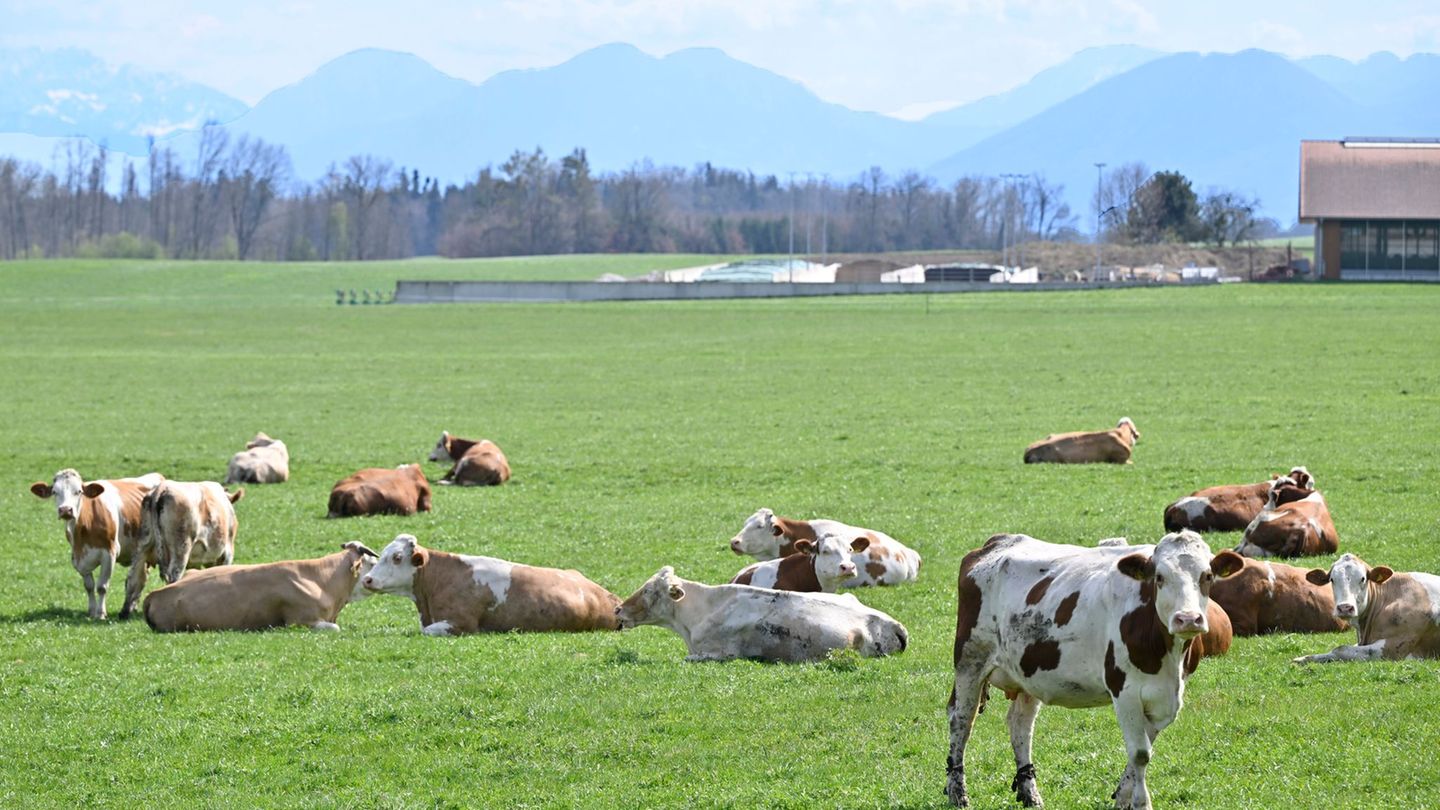A good week until the federal election – and the trend reversal hoped for by the Union in the polls has not yet materialized. Not only FDP boss Lindner is concerned with how to deal with an SPD victory.
A good week before the general election, the SPD is still ahead with 25 percent in a new poll. The CDU / CSU come to 22 percent in the survey of research group elections. The Greens follow with 16 percent – after losing one point.
In view of the fairly stable poll trend, the parties are increasingly turning their attention to the likely difficult coalition negotiations afterwards.
Even if the SPD had a lead, FDP leader Christian Lindner would not automatically support candidate Olaf Scholz as chancellor after the election, as he made clear in the “Handelsblatt”. In the CDU, Friedrich Merz is again named as a minister of a union government. Green candidate Annalena Baerbock does not give up in the fight for the Chancellery, as she told the German Press Agency. But she admitted: “For that we need a few more votes.”
As the ZDF “Politbarometer” published on Friday further shows, the FDP and AfD could each expect 11 percent and the left 6 percent. In other surveys, too, the SPD came to 25 or 26 percent, the Union to 20 to 23, the Greens to 15 to 17, the FDP to 10 to 13, the AfD to 11 to 12 and the Left to 6 to 8 percent.
Lindner said that probably over 70 percent of the people would not have voted Scholz in the end. “The coalition options decide,” said the FDP leader. He referred to elections at the state and federal level, after which smaller parties did not enter into a government alliance with the election winner, but with the number two. “For the FDP, the content decides which personality we would accompany to the Chancellery.”
According to the survey, only a coalition of the SPD and CDU / CSU would have a narrow majority among possible two-party alliances. The SPD wants to avoid this at all costs. It would be enough for a traffic light made up of the SPD, Greens and FDP and a government made up of CDU / CSU, Greens and FDP. Red-green-red would also be mathematically possible.
When asked whether it was not presumptuous to continue to speak of a green-led government, Baerbock said: “In the last few months we have seen how quickly polls go up and down and that’s why I’m not aligning my policy with polls, but with them what is possible in this country. “
For possible coalition negotiations between the SPD, the Greens and the Left after the election, Thuringia’s Prime Minister Bodo Ramelow (Left) is ready as a mediator. The left has clarified a key question for itself, “namely that it wants to govern,” said Ramelow of the German press agency in Erfurt. He therefore assumes that coalition negotiations could take place. He had been asked by left leader Susanne Hennig-Wellsow to be ready to take part in the event of coalition negotiations.
In the event of a Union government, Union faction leader Ralph Brinkhaus sees the financial expert Friedrich Merz (CDU) on a ministerial post. “I assume that he will be a member of the next federal government,” said Brinkhaus to the editorial network Germany (RND). Chancellor candidate Armin Laschet had already promised the former parliamentary group leader an important future role.
Meanwhile, the debate about the search of two SPD-led federal ministries in investigations against the anti-money laundering unit of the customs continued. After the SPD demanded clarification and speculated about an election campaign background, the Lower Saxony Ministry of Justice responded to questions from the SPD parliamentary group. In the letter available to the dpa, the CDU-led house quotes the Osnabrück public prosecutor’s office, which is conducting the investigation. This had the decision for search warrants “made autonomously”. SPD leader Saskia Esken criticized the searches as “inappropriate”. More and more experts are of the opinion that the raid was not appropriate, said Esken on SWR radio.
Many voters find the current election campaign relatively boring. In a survey carried out by the YouGov opinion research institute on behalf of the dpa, only four percent of those eligible to vote described the current election campaign as “extremely exciting”. 16 percent of those questioned rated the competition between the parties as “rather exciting”.
David William is a talented author who has made a name for himself in the world of writing. He is a professional author who writes on a wide range of topics, from general interest to opinion news. David is currently working as a writer at 24 hours worlds where he brings his unique perspective and in-depth research to his articles, making them both informative and engaging.




